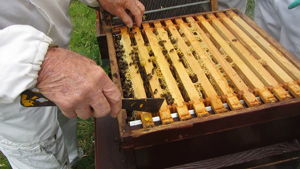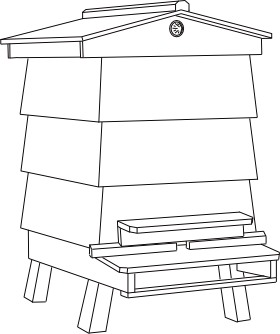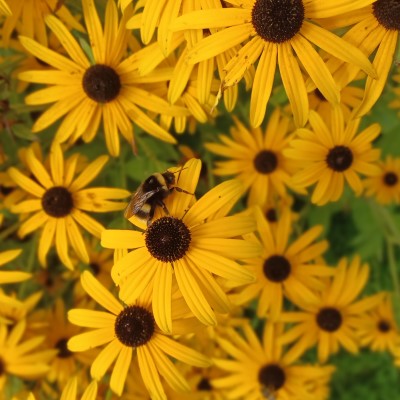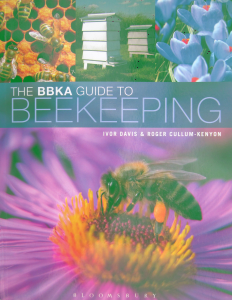Frequently Asked Questions
Do I need to have bees to join East Devon Beekeepers?
No! You are very welcome whether you have bees, or not, as long as you have an interest in bees and beekeeping. There are different classes of membership with different subscription rates according to your needs.

I am just starting. What type of hives should I get?

There are up to a dozen types of hive commonly available and beekeepers have different opinions on which are best. Some of the more widely used types are described on the Which Hive page of this website.
Before you buy any hives, seek advice from an experienced beekeeper and make the final decision on what is right for your situation. Most beekeepers stick to one type of hive so all the parts are interchangeable.
※ ※ ※ ※ ※
Can I keep bees in my garden?
Possibly! Seek help from your local Beekeeping Association, who will be able to advise you on the suitability of the site. Should your garden be unsuitable there are other possibilities such as an out-apiary. Your local Association may know of suitable sites.

※ ※ ※ ※ ※
How much honey can one beehive produce?

This depends on many factors, such as forage available, seasonal weather, beekeeper management and strength of the colony. A strong, well managed colony in an ideal area and a brilliant summer can produce a surplus of 100-lb in a good year, but 30-lb is more typical.
※ ※ ※ ※ ※
If I were interested in keeping bees and becoming a beekeeper, how would I get started?
- Join your local association. Look at the Get Started pages on this website.
- Attend a Beginners course if possible. This should include ‘hands on’ experience at the branch apiary (see East Devon Beekeepers course).
- Befriend a beekeeper who can mentor you in the early days.
- Read books on bees and beekeeping from the local library. As a member of East Devon Beekeepers you can borrow books from the branch library.

※ ※ ※ ※ ※
How much time does it take?

In the swarming season (April, May, June) weekly visits are advised (10-15 minutes per hive when experienced), but during the rest of the summer and outside the beekeeping season less frequent visits are adequate. With luck, several hours will have to be devoted to extracting honey in August and thereafter it is mainly a question of monitoring health and ensuring the bees have adequate stores for the winter.
※ ※ ※ ※ ※
How much will equipment cost?
You can find the costs involved by looking at the beekeeping equipment suppliers’ websites (see Links page). Most suppliers have both ‘made up’ and ‘self assembly’ hives. The latter are cheaper. Alternatively you may be able to pick up second hand equipment. This will need to be thoroughly cleaned before use to avoid the spread of disease. Making your own equipment is a possibility but be sure you understand the concept of ‘bee space’ before you attempt this. Equipment is covered on most well-run beekeeping courses.

※ ※ ※ ※ ※
Where can I get bees?

Equipment suppliers also sell ‘nucleus’ colonies of bees in a box, usually 3-5 frames with bees, brood and a young laying queen. Alternatively, as part of a beekeeping group, other members may have colonies for sale or may be able to provide you with a swarm. As swarms are often of unknown origin precautions against possible diseases should be made. Ask your mentor for advice.
※ ※ ※ ※ ※